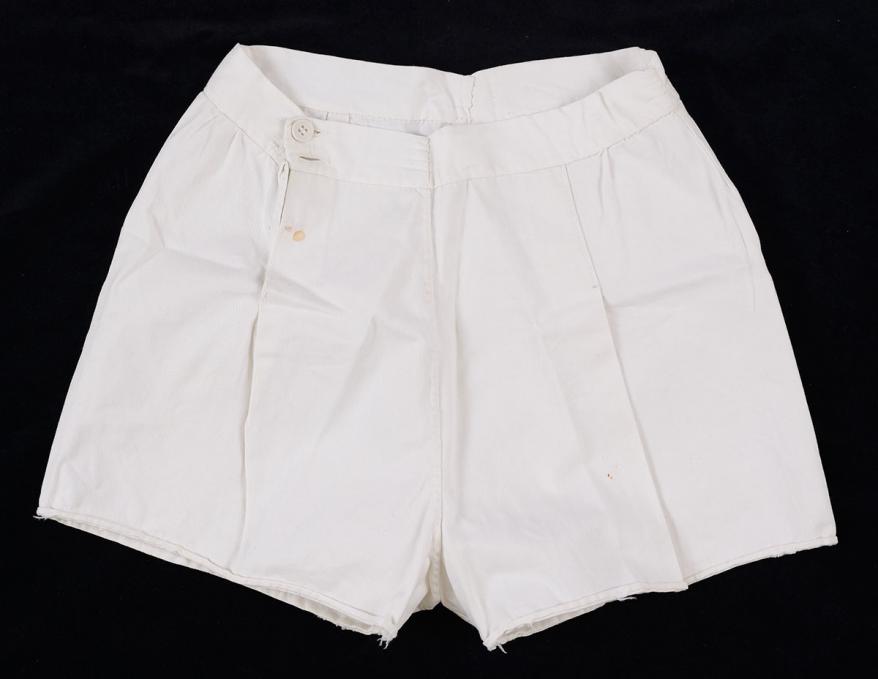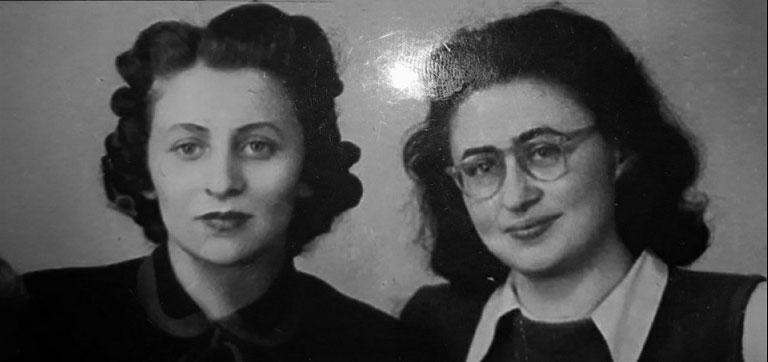
Yad Vashem Artifacts Collection
Courtesy of Tzippora Jungreis, Moshav Hazorim, Israel



Sunday to Thursday: 09:00-17:00
Fridays and Holiday eves: 09:00-14:00
Yad Vashem is closed on Saturdays and all Jewish Holidays.
Entrance to the Holocaust History Museum is not permitted for children under the age of 10. Babies in strollers or carriers will not be permitted to enter.

Yad Vashem Artifacts Collection
Courtesy of Tzippora Jungreis, Moshav Hazorim, Israel



In October 1944, 24-year-old Zipporah Gross and her 21-year-old sister, Miriam were among a group of Jews sent from Budapest to a labor camp in the area. They were forced to dig anti-tank trenches, and two weeks later they were deported to the Ravensbrück camp.
In January 1945, the sisters were transferred to the Venusberg camp, where they worked in an aircraft factory. Even after the factory was bombed by the Allies, it continued to operate until mid-April when the prisoners, among them Zipporah and Miriam, were transferred to the Mauthausen camp. The train journey took two weeks under unspeakable conditions with no food or water and very few breaks in the journey. Three days after they arrived at Mauthausen they were liberated by the US Army.
Zipporah was in extremely poor condition and was taken to a hospital near Mauthausen where she stayed for three months. During this time, she made a shirt and shorts out of a white sheet.
After she was released from hospital, she returned to Mauthausen to look for her sister, Miriam. In her testimony, she relates:
"I met some girls who had been with us. I was happy to see someone I remembered, and I asked them, 'When did my sister go home?' They said: 'They all contracted typhus'… and my sister had also died."
Zipporah returned to Hungary to see if her parents or any of her eight brothers and sisters had survived. She found two siblings. She joined a Bnei Akiva Hachshara (Zionist pioneer training) group and in 1948 she immigrated to Israel.
Yad Vashem Artifacts Collection
Courtesy of Tzippora Jungreis, Moshav Hazorim, Israel

Thank you for registering to receive information from Yad Vashem.
You will receive periodic updates regarding recent events, publications and new initiatives.

"The work of Yad Vashem is critical and necessary to remind the world of the consequences of hate"
Paul Daly
#GivingTuesday
Donate to Educate Against Hate


Worldwide antisemitism is on the rise.
At Yad Vashem, we strive to make the world a better place by combating antisemitism through teacher training, international lectures and workshops and online courses.
We need you to partner with us in this vital mission to #EducateAgainstHate
The good news:
The Yad Vashem website had recently undergone a major upgrade!
The less good news:
The page you are looking for has apparently been moved.
We are therefore redirecting you to what we hope will be a useful landing page.
For any questions/clarifications/problems, please contact: webmaster@yadvashem.org.il
Press the X button to continue



